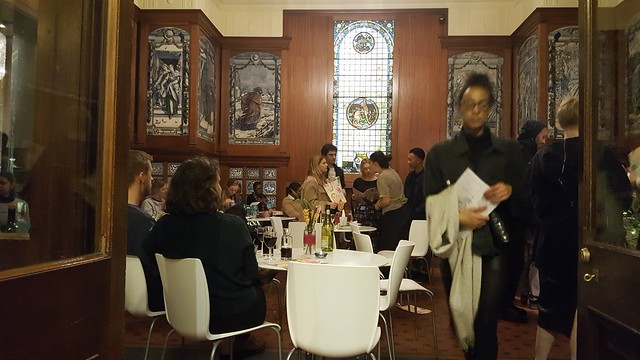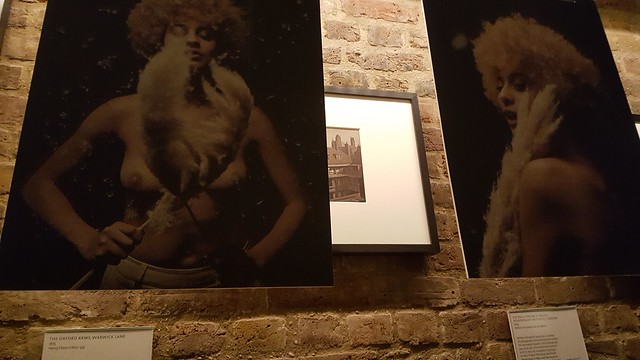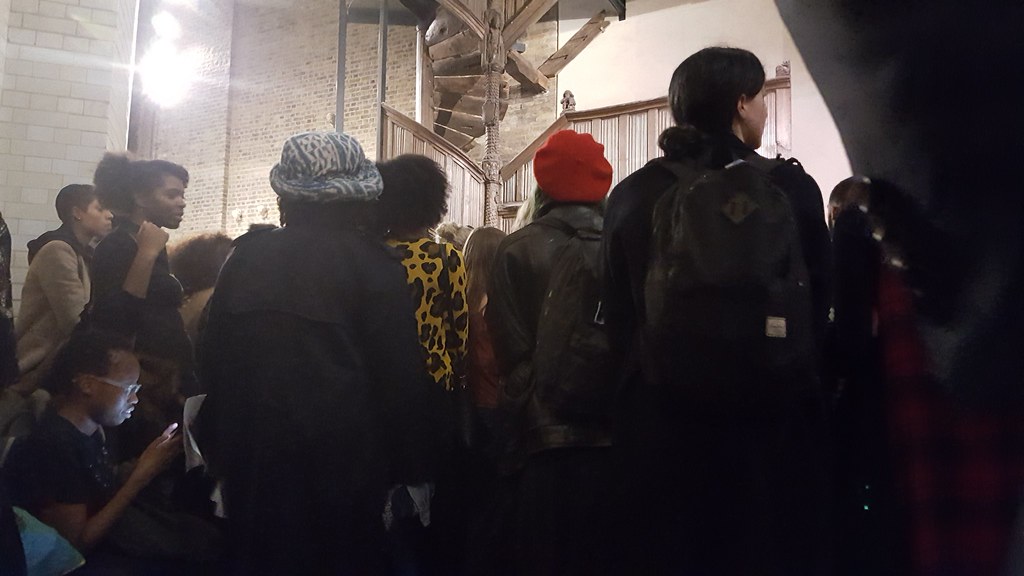
The week before last, I recieved an e-mail
I am contacting you on behalf of gal-dem (http://www.gal-dem.com/ ) and the V&A Museum, as we hoped you would be interested in taking part in our upcoming event.
Hosted on the 28th October, gal-dem are taking over the Museum to curate a night of talks, workshops and films which celebrate women of colour.
During the course of the evening we will be hosting three panels discussions exploring what it means to be a woman of colour in various spaces. The first will be on creative women, the second on music and the third on politics. Each talk will be aprox 30-40 minutes long and include 4 women on each panel. We would love you to speak on the panel for politics. Is this something that you would be interested in?
I was pleased to be asked and agreed even if it was scheduled at the late hour of 9pm. The V&A requires a fair bit of travelling to get to and back from where I am.
Upon discussion about the panel discussion itself, one mentioned surprisingly that for her, ‘people of colour’ referred to Black people, those of Afro-Carribean heritage and with someone else who is herself of that background, said she did not like the term. I asked this of a Black British person I respected and she told me that it’s used mostly in the USA, with its origins there, but not a prefered term here in the UK – similar to the usage of ‘people with disabilities’ (mostly used in the USA ) and ‘disabled people’ (here in the UK).
I started questioning on how I would identify myself then as an East Asian or South East Asian/ Malaysian Chinese/British Chinese. But I do not really want to box myself. I had written briefly on that discussion of terminology for Media Diversified.
Of course I question myself on identity politics – should identity be framed as only a political issue? No is the brief answer. Its also very much a cultural issue. I was brought up in a very multi cultural, multi faith environment where we had to learn more than one language but my parents only spoke to us in Cantonese and I grew up listening to Cantonese opera but watching Bollywood as well as Hollywood movies. I did South East Asian history and English Literature learning about daffodils but knowing nothing about the local fauna and flora. I’ve moved so much in my life and gained nourishment from each of the places I have called home, Kent, Yorkshire, Strasbourg, Austin, Massachusetts, Coventry and London…
I am very grateful to friends, both American and British, hearing my doubts voiced – took the trouble to tell me about the origins of the term ‘women of colour’ from Loretta Ross:
“….didn’t see it as a biological designation—you’re born Asian, you’re born Black, you’re born African American, whatever—but it is a solidarity definition, a commitment to work in collaboration with other oppressed women of color who have been “minoritized.”
This is exactly how I would want to add myself there, as a gesture of solidarity so that I do not have nail my nationality, birthplace, ethnicity (colours) to the mast. In a way it is like the social model of disability, I do not have to state my impairments – by saying I am disabled, I am joining a community which had been discriminated against.
It was a great evening, I ate with friends there even if we did not make it to the Soul Food Kitchen, I was dazzled by the diversity of the Gal-Dem ensemble, it was so so busy…I’m sorry to have missed the ‘twerking’ session

great contemporary portraits

but I could not see the poets performing their poems 🙁 a shame…


